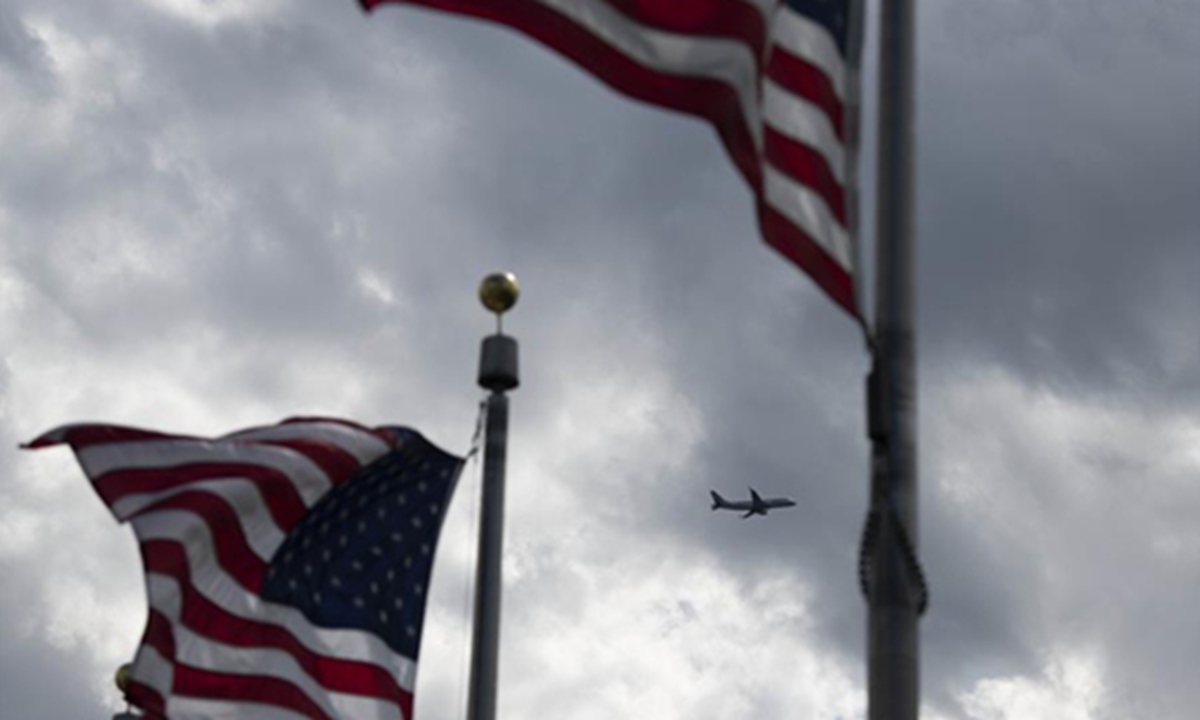Caution urged as US seeks to spread political viruses
Source: Global Times Published: 2020/7/20 21:38:18

Photo: Xinhua
With just a few months left before the November presidential election, the US economy is still in the midst of its worst recession since the Great Depression, a desperate situation that may elicit a more aggressive foreign policy orientation from the Trump administration.The troubling state of the US economy has unsurprisingly put US President Donald Trump's odds of re-election in crisis. Recent results of several national polls all showed that Joe Biden, the Democratic candidate for president, has recently been leading Trump by a widening margin. These factors will make the president, who likes to brag about his economic achievements, even more eager to lift the economy out of its current trough. It could be expected that the administration will desperately resort to any means necessary to restart the economy in the coming months.
The recent COVID-19 upturn in the US may have already proven that Trump's reopening push was in vain - or even harmful. If the pandemic cannot soon be brought under control, the government's inability to handle the crisis will leave it with few options.
The Federal Reserve is likely to continue flooding the market with unprecedented liquidity, which thus far seems to have only limited the COVID-19 impact on the stalling US economy in addition to stabilizing financial markets. This money-printing approach has stoked renewed fears over potential asset bubbles as the US' massive quantitative easing comes at the cost of severe global inflation due to the dollar's hegemonic status in world trade and financial markets.
What's worse, with no economic boost from conventional stimulus policies over recent months, the US government may be tempted to use political means to achieve economic breakthroughs on unconventional fronts. Nothing could be clearer than the current reality: the worse the US economy performs, the grimmer Trump's re-election prospects and the more aggressive the country's foreign economic policies. The US' dispute with the EU over digital service taxes, its tariff threat on Canadian aluminum, and its open hostility against China on multiple fronts have all pointed to such a tendency.
The world should be alarmed at the US' unusual method of spreading political viruses to suppress countries, which has already greatly upset the world economic order and geopolitical pattern.
This past weekend saw G20 finance ministers and central bank governors meet to announce their debt suspension supports for the world's poorest countries, which, however, are far from what was expected in terms of a global economic rescue plan. There were widespread calls for G20 policy coordination after the 2008 financial crisis, but now such voices are almost absent from academic and political circles - even though the current economic predicament is no smaller than the previous one. An important cause of the disappointing situation is that the US' aggressive foreign policy is doing irreparable damage to the global push for recovery, with global populism and protectionism on the rise.
But at a time when the pandemic is wreaking havoc on the global economy, what the world economy really needs is international cooperation and macroeconomic coordination to seek new growth impetus, not a new Cold War.
Posted in: GT VOICE